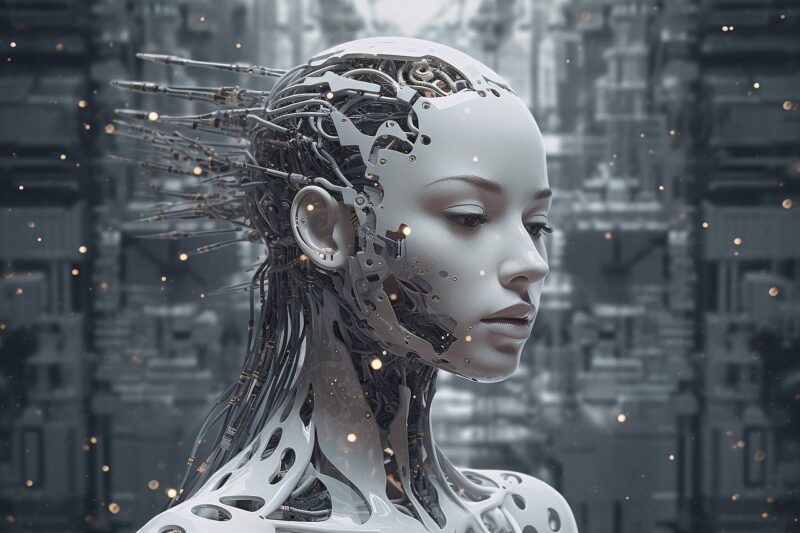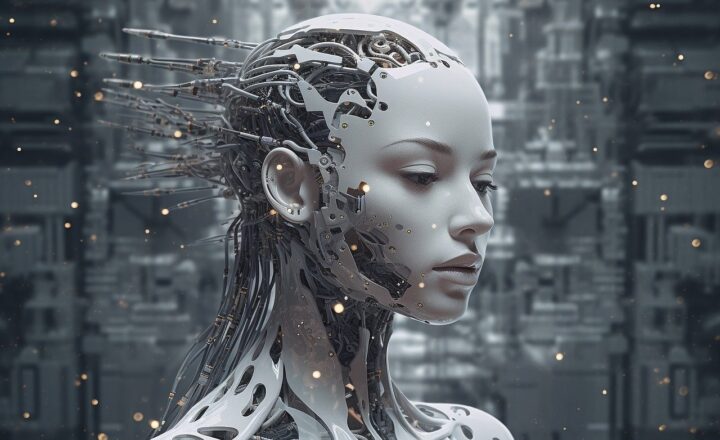From Pixels to Reality: The Rise of Artificial Intelligence in Everyday Life
November 18, 2024

Artificial Intelligence (AI) has moved from being a futuristic concept to an integral part of our daily lives. If you think about it, AI is present in our smartphones, homes, workplaces, and even in our cars. Today, we will explore how AI is revolutionizing various sectors and impacting everyday experiences, while also addressing the challenges and future of this transformative technology.
1. Understanding Artificial Intelligence
Artificial Intelligence refers to the simulation of human intelligence in machines programmed to think like humans and mimic their actions. The field of AI encompasses a variety of sub-disciplines, including:
- Machine Learning: A method where computers are trained to learn from data and improve their performance over time without being explicitly programmed.
- Natural Language Processing (NLP): Enables machines to understand and respond to human language in a way that is both valuable and meaningful.
- Robotics: The design and use of robots for various applications, often equipped with AI technologies for autonomous functions.
- Computer Vision: Enables machines to interpret and make decisions based on visual data from the world around them.
The blend of these technologies is what makes AI such a versatile tool, changing the way we interact with everything from websites to appliances.
2. AI in Daily Life: Where to Find It
AI is no longer confined to research labs or corporate environments; it has permeated our everyday environments in numerous ways:
2.1. Smart Assistants
From Siri and Google Assistant to Amazon’s Alexa, smart voice assistants enhance user experience by facilitating tasks like scheduling, setting reminders, and controlling smart home devices. Users can interact with these assistants using natural language, making technology feel more intuitive.
2.2. Personalized Recommendations
If you’ve ever used Netflix or Spotify, you’ve experienced how AI analyzes your preferences to recommend shows or music tailored specifically to your tastes. This personalization is powered by complex algorithms that learn from your interactions, making content discovery more efficient.
2.3. E-commerce Innovations
AI plays a critical role in optimizing e-commerce experiences, from chatbots that assist customers in real-time to recommendation engines that suggest additional products based on browsing history. Retailers employ AI for inventory management, pricing optimization, and predicting customer behaviors.
2.4. Healthcare Improvements
AI algorithms help doctors make better diagnoses by analyzing medical images and identifying patterns that might elude human eyes. These tools can lead to faster treatments and more accurate predictions of patients’ health outcomes.
2.5. Autonomous Vehicles
Companies like Tesla are at the forefront of developing self-driving technologies that leverage AI for navigation, hazard detection, and decision-making on the road. While fully autonomous vehicles are not yet commonplace, advancements in AI are consistently improving vehicle safety and efficiency.
3. The Benefits of AI in Everyday Life
The integration of AI into our lives brings a host of benefits:
- Efficiency: AI technologies streamline processes, allowing for faster results and less manual overhead. Tasks that used to take hours can now be completed within minutes.
- Accessibility: AI makes technology more accessible for people with disabilities through voice recognition and text-to-speech applications, enhancing their ability to communicate and interact with the world.
- Data Analysis: AI can analyze large sets of data, uncovering trends and insights that drive informed decision-making across various industries.
- Enhanced Customer Experience: Personalized interactions lead to increased customer satisfaction, loyalty, and ultimately, better sales performance for businesses.
4. Challenges and Concerns Surrounding AI
While the rise of AI brings many advantages, it’s essential to consider the potential challenges and concerns:
- Privacy Issues: As AI systems often rely on large datasets, there are concerns regarding data privacy and how personal information is used and protected.
- Job Displacement: Automation of tasks traditionally performed by humans raises concerns about potential job losses in certain sectors, prompting discussions about the future of work.
- Ethical Implications: Decisions made by AI, particularly in areas like criminal justice or hiring processes, can perpetuate bias and inequality if not managed correctly.
- Dependence on Technology: Over-reliance on AI systems may diminish critical thinking and decision-making skills among individuals.
The forthcoming developments in AI necessitate responsible implementation and a collaborative effort among users, advocates, and policymakers to navigate these challenges.
5. The Future of AI in Our Lives
Looking ahead, we can expect AI to become even more integrated into our lives. Key trends to watch for include:
- Increased Personalization: As AI evolves, users can anticipate even more tailored experiences across different platforms, enhancing user engagement and satisfaction.
- Collaborative AI: AI systems are likely to work alongside humans, augmenting our capabilities rather than replacing them, leading to collaborative environments in workplaces across sectors.
- AI in Education: Tailored learning experiences will emerge, making education more accessible and personalized for students of all ages and learning styles.
- Improvements in Security: AI will play a significant role in enhancing cybersecurity, identifying potential threats before they escalate, and ensuring the safety of individuals and organizations alike.
The challenge before us is to ensure that AI development is directed towards enhancing human potential and fostering inclusivity, safety, and security.
Conclusion
Artificial Intelligence is not just a technological fad; it has redefined how we live and work. As AI continues to evolve, it brings both opportunities and challenges that require thoughtful consideration. By embracing AI while addressing its implications, we can harness its power to improve our daily lives and build a better future for everyone.
As we stand on the precipice of a new era defined by AI, the key takeaway remains: This technology, grounded in human ingenuity, has the potential to transform not only our personal lives but also the broader societal landscape. The journey of AI is just beginning, and it promises to be both exciting and transformative.







